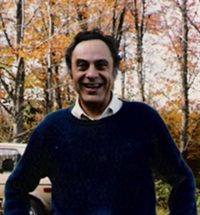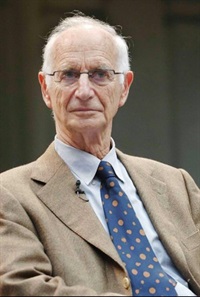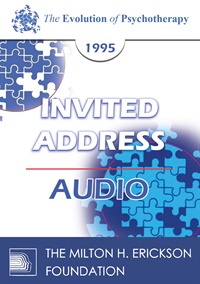EP95 Invited Address 09b - The Use of Focusing in Therapy - Eugene Gendlin, PhD
- Average Rating:
- Not yet rated
- Topic Areas:
- Invited Addresses | Focusing | Mind-Body | Psychotherapy
- Categories:
- Evolution of Psychotherapy | Evolution of Psychotherapy 1995
- Faculty:
- Eugene Gendlin, PhD | James Hillman, PhD
- Duration:
- 1 Hour 27 Minutes
- Format:
- Audio Only
- Original Program Date:
- Dec 16, 1995
- License:
- Never Expires.
Description
Description:
Invited Address Session 9 Part 2 from the Evolution of Psychotherapy 1995 - The Use of Focusing in Therapy
Featuring Eugene Gendlin, PhD; with discussant James Hillman, PhD.
Moderated by Carol Kershaw, EdD.
Focusing is bodily attention, not to mere sensations but to an at first unclear, implicitly complex bodily sense-of a situation, problem, or aspect of life. Therapy deepens immediately with many clients if asked what physical sense comes in the middle of the body in relation to what is being worked on. With half a minute of repeated direct attention, clients can assign a "quality-word," e.g., "heavy," "fluttery," or "tight." Then small steps come to say the crux of the problem. Each brings a slight (later large) "shift" and release, a direct sense of validity, although further steps may again change the whole problem. Without disrupting the hour, most clients who cannot do this, can gradually learn it from small questions now and then, such as "What comes in your body?" "Is it heavy, fluttery or how?" and "Stay a little while with that sense. Can you let it come again?" The bodily sense-of an implicit complexity is not widely known.
Educational Objectives:
- To describe basic issues in psychological change.
- To illustrate the basic role of the body in change process due to bodily sensing of situations, not only body as such.
- To describe a new way to access this role within the psychotherapy frame as well as otherwise.
*Sessions may be edited for content and to preserve confidentiality*
Credits
Faculty

Eugene Gendlin, PhD Related Seminars and Products
Eugene T. Gendlin, PhD, is an American philosopher and psychotherapist who developed ways of thinking about and working with living process, the bodily felt sense and the 'philosophy of the implicit'. Gendlin received his Ph.D. in philosophy in 1958 from the University of Chicago where he became an Associate Professor in the departments of Philosophy and Psychology.
His philosophical work is concerned especially with the relationship between logic and experiential explication. Implicit intricacy cannot be represented, but functions in certain ways in relation to philosophical discourse. The applications of this "Philosophy of the Implicit" have been important in many fields.
His philosophical books and articles are listed and some of them are available from this web site. They include Experiencing and the Creation of Meaning, (in paperback) and Language Beyond Post-Modernism: Saying and Thinking In Gendlin's Philosophy (edited by David Levin) , both from Northwestern University Press, l997 and A Process Model.

James Hillman, PhD Related Seminars and Products
James Hillman, PhD, who received his Ph.D. degree from the Univeristy of Zurich, has served as honorary secretary of the International Association for Analytical Psychology and for 10 years was Director of Studies at the C.G. Jung Institute in Zurich. He has written 12 books and was nomiated for a Pulitzer prize.


